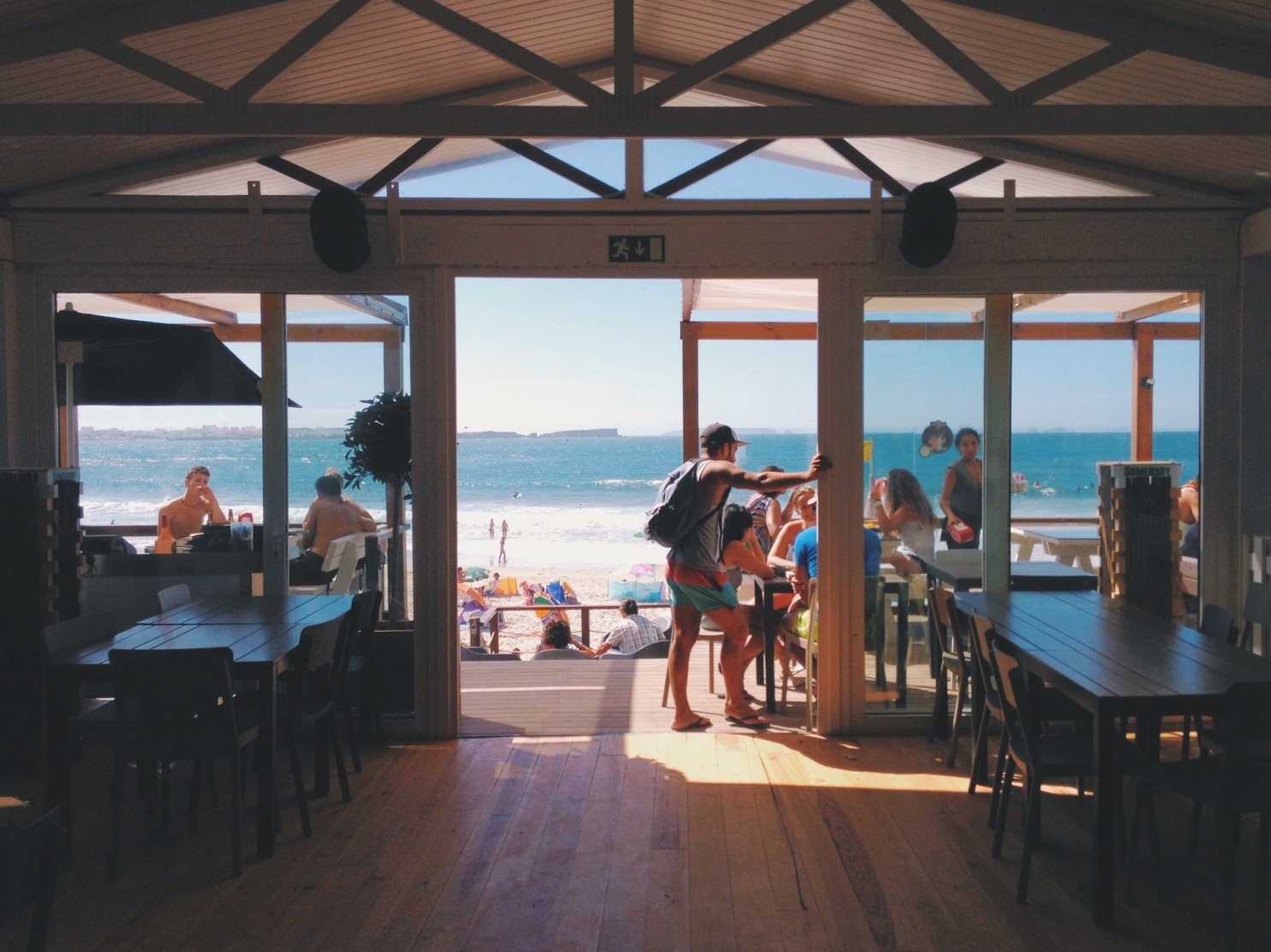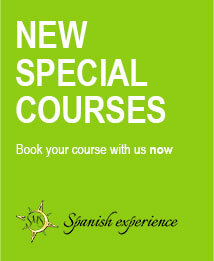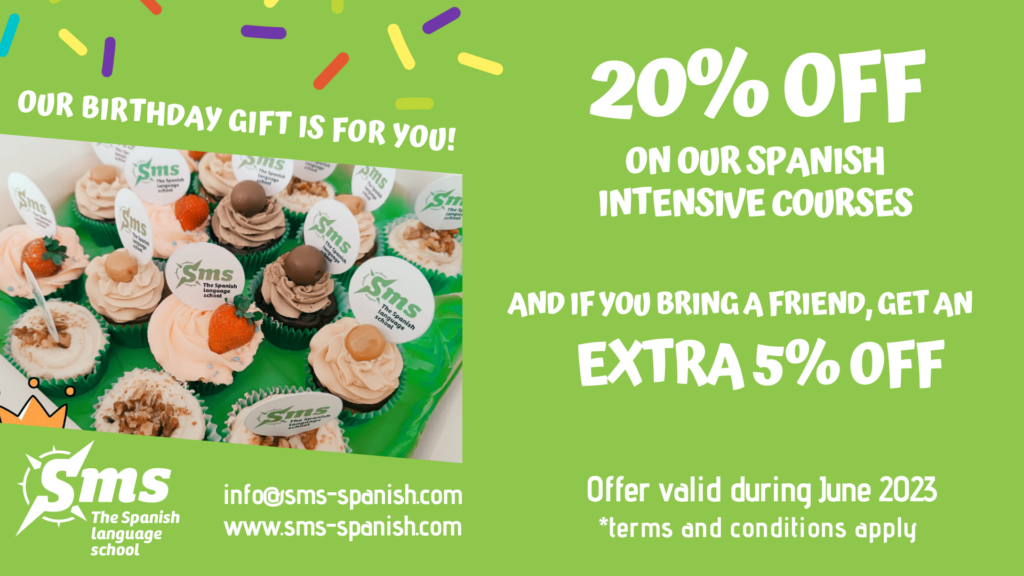People in Tenerife are famous for being very open-minded and chatty. This is great for students learning Spanish, as your first conversations with a native speaker might be much easier over here than in other regions. As locals love to talk a lot, you can get away with listening more than having to talk. Plus: they will be comprehensive and patient with you if you shall struggle to find the right words.
But, even if you rely on your counterpart to talk most of the time, you will still have to take part in the conversation. And this is the moment when our 10 useful Spanish phrases for conversation come in handy. They might not represented the more advanced Spanish levels and it might not be possible to discuss quantum physics in Spanish with them. Yet they will help you to start a conversation with someone you haven’t known before – everything else will come naturally.
So here they are. And actually you will realise, it is more than 10 useful Spanish phrases:
Our list of useful Spanish phrases for conversation with a stranger in Spain
Let’s start easy, with a simple:
1) ¡Hola! ¿Cómo estás? (Hello! How are you?)
There is so many possibilities how the other person may react! And when your counterpart will surely ask you the same, think of a good way to respond to start a conversation. Here are some ideas:
- Estoy bien, gracias a … (I’m fine, thanks to …)
- Estoy un poco cansado/a. Hoy ha sido un día largo, porque … (I’m a little tired. Today has been a long day, because …)
- ¡Estoy fenomenal, gracias por preguntar! Por cierto, … (I’m doing great, thanks for asking! By the way, …)
As you haven’t met the other person before, the next step of the conversation seems obvious:
2) ¿Cómo te llamas? (What is your name?)
The response will be “Me llamo …” (My name is …). Take it from there:
- Encantado/a de conocerte. (It’s a pleasure to get to know you.)
- ¡Que nombre más bonito! ¿Es un nombre español/italiano/xxx? (What a lovely name! Is it a Spanish/Italian/xxx name?)
Now it is all about getting to know the other person. A good way to find out more can be the following question:
3) ¿Cuántos años tienes? (How old are you?)
Unless your conversation partner doesn’t want to reveal this information, you will hear: “Tengo xxx años” (I’m xxx years old). And with some luck you will be asked as well
But maybe there will be another question coming up first, which is:
4) ¿De dónde eres? (Where are you from?)
Your counterpart will probably say something like “Soy de Tenerife/Uruguay/Madrid/xxx” (I’m from Tenerife/Uruguay/Madrid/xxx). Now it’s your turn and there are lots of ways you could respond:
- ¿De verdad? ¡Que país/ciudad más bonita! (Really? What a beautiful country/city!)
- ¿Eres de xxx? ¡Ahí estuve de vacaciones! (You are from xxx? I have been there on vacation!)

Another good question to continue the conversation is:
5) ¿A qué te dedicas? (What is your profession?)
Almost every job is interesting, so you will have a lot of possibilities to continue talking after this question.
- ¡Que interesante! ¿Qué haces normalmente durante un día de trabajo? (How interesting! What are you normally doing during a work day?)
- ¡Qué gracioso! Ese era el trabajo de mis sueños cuando era más joven. (How funny! This was my dream job when I was younger.)
Also, if the situation allows, you can make the conversation more personal:
6) ¿Tienes hermanos? ¿Tienes pareja? (Do you have siblings? Do you have a partner?)
Focussing on family, friends and relationships is in most cases a great way to keep a conversation going, as there is a lot to talk about.
- ¡Ah, yo también tengo una hermana! (Ah, I also have a sister!)
- Que bien. Yo llevo con mi pareja xxx años. (That’s nice. I have been together with my partner for xxx now.)
In the improbable case that you still don’t have much to talk about with a Spanish person, here is another favourite
7) ¿Qué te gusta hacer en tu tiempo libre? (What do you like to do in your free time?)
With this question, anything is possible! Talk with your counterpart about your favourite hobbies, activities in the area or share adventurous stories.
- ¿Haces parapente? ¡Que impresionante! ¿Cuántos años has tardado en aprenderlo? (Are you doing paragliding? That is impressive! How many years did it take you to learn it?)
- ¡A mi también me gusta ir al cine! ¿Te gustaría ir un día juntos? (I also enjoy going to the cinema. Would you like to go together some day?)
- Entonces viajas mucho. ¿Dónde has viajado últimamente? (So you travel frequently. Where have you traveled to lately?)
So far so good. The next useful phrase in Spanish will ensure, that this is a conversation for hours to come:
8) ¿Qué tipo de música te gusta? (What is your favourite type of music?)
Favourite groups, concerts you have been to, styles you like and styles you don’t – there is so much to talk about.
- A mi también me gusta la música tradicional de las Islas Canarias. (I also enjoy the traditional music of the Canary Islands.)
- ¿Sabías que Michael Jackson estuvo en Tenerife hace años? (Did you know that Michael Jackson was in Tenerife some years ago?)
You are not so much into music? Try to make conversation about movies then:
9) ¿Cuál es tu película preferida? (What is your favourite movie?)
Start your answer with “Mi película preferida es…” (My favourite movie is …”) and see how things develop.
- A mi no me gustan las películas de miedo. ¿A tí? (I don’t like horror movies. Do you?)
- La última película con Antonio Banderas ha sido muy buena. (The last movie with Antonio Banderas was really good.)
And finally, the perfect icebreaker for any conversation:
10) ¿Qué es lo más divertido que te ha pasado? (What is the funniest thing that ever happened to you?)
These phrases make you well prepared to start and maintain a conversation in Spanish with a local person. Try to practice it as soon as you can and please do not be afraid to talk with native speakers. Do not wait for your plane to land on Spanish speaking and try out this video, it provides great explanation not just of the vocabulary but also body language. It will be a fun experience and you will see, that it will be much easier than you thought. To help you get
We wish you a great time talking to Spanish people and just in case you still do not feel prepared, contact us and we will help you with learning Spanish! 🙂
Follow our blog, learn Spanish with us and explore the best beaches in Tenerife and other information about the islands.
Your Spanish Experience Team




